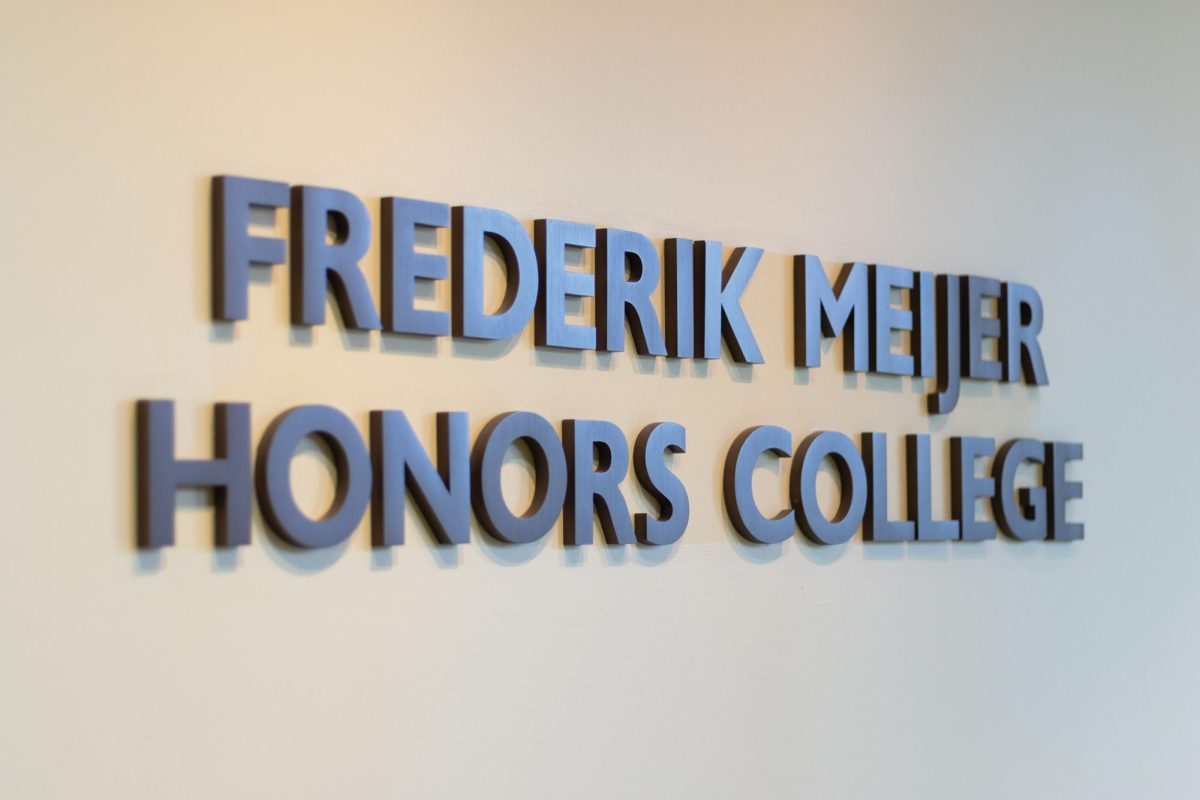“Earth Matters” is a new first-year sequence, a course, available to students in Grand Valley State University’s Frederik Meijer Honors college starting this fall.
In this non-traditional full year course, students will go out to a local sustainable agricultural farm every Friday amongst other community outreach projects.
Professor Peter Wampler and Professor Melba Vélez Ortiz are teaching the course this year and are looking forward to changing student’s lives and perspectives.
“Last year I taught a prototype of the class. Students created press releases for different environmental events. They created a visual campaign about awareness for river and cleanliness. They created public service announcements. They wrote to congress,” Vélez Ortiz said. “These are things that in a normal ecology class, you don’t do!”
Wampler said that as the year progresses, they have plans to talk about the Flint Water Crisis with the aid of the book “What The Eyes Don’t See,” a popular book by author Mona Hanna-Attisha. The professors also plan to do some local community work regarding the PFAS chemical issue that has been spreading in Rockford and all around western Michigan.
However, their work does not stop with conversations in the classroom or learning about the PFAS contamination issue around western Michigan.
In February of last year East Palestine, Ohio had a train derailment, and various chemicals and toxins were spilled into the environment. Vélez Ortiz said she has been working throughout the summer to get in contact with residents of East Palestine and ask them how they are handling the situation.
“They’re not doing well and the Environmental Protection Agency is not doing much to help them,” Vélez Ortiz said. “They’re coming out and testing the soil, but they’re not even giving the results to the residents. They post the results on a website. The problem is, the way that they’re communicating the test results is so obtuse, not even a water expert like my colleague Dr. Wampler can read them easily.”
One of major topics the class focuses on is taking the findings that the students come up with and the things they learn and translating them better so everyone can understand them.
“They’ll be interpreting scientific data, understanding environmental issues, and also understand both how those issues are being communicated about and how to communicate about them,” Wampler said. “We want them to understand how complicated it is to solve environmental problems and how complicated it is to help people hurt by environmental problems: it’s not quite what you think.”
Vélez Ortiz said this seminar in particular challenges students mentally. Right now, she has plans to challenge students to create a meme about climate change. There will be a vote and a grand prize winner, but that’s not her main focus.
“It takes a tremendous amount of creative energy to take something that is so multifaceted and put it into this one image that will hit people,” Vélez Ortiz said. “You’re going to have to understand the science, there’s no shortcuts. But at the same time, you’re gonna turn that around and turn it into messaging everyone can understand.”
This seminar is specifically designed for freshman honor students, which makes both professors even more excited for the outcome of the class and what the students will walk away learning.
“We’re hopefully instilling in students a passion for advocacy and getting involved. I hope the students will get others involved (in community service projects) in their free time because they think it’s valuable,” Wampler said.
The students will be learning teamwork and communication skills, much like in any other class. Both professors look forward to watching students gain appreciation for how important those skills are outside of just finishing a paper.
“My students get to do good in this world and they also get to understand that environmental crises are human crises,” Vélez Ortiz said. “We’re learning about the environment, but we’re helping each other and helping other people, right now. No need to wait until you graduate, people need you right now. Mutual aid, that’s where it’s at, and we gotta teach students how to do it.”






















